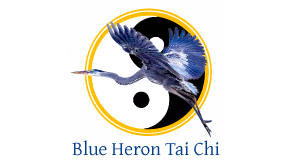Today, I received a copy of a Harvard Medical School special health report called: ‘An Introduction to Tai Chi.’ This is a 46 page booklet that recommends Tai Chi as an exercise program for mental and physical well-being.

The Harvard Medical School doesn’t make recommendations lightly. It only recommends practices that have been proven through rigorous, scientific testing. The findings of the tests conducted by the Medical School were surprising. Surprising because Tai Chi not only delivered measurable results, but it delivered those results across so many aspects of well-being, all without any negative side effects. And, as you already know, it is probably the most inexpensive way to create and maintain health.
The Harvard Medical School found Tai Chi provides the following benefits:
Better balance
Less pain
A sharper mind
A happier disposition
Less stress
More self-confidence
A stronger heart
The word is spreading. The following agencies, as documented in this report, have all performed studies on the effects of Tai Chi on the human body. And each and every one reported measurable improvements.
American College of Physicians
American Heart Association
Annals of Internal Medicine
Archives of Gerontology
Arthritis Foundation
Centers for Disease Control and Prevention
Journal of Alternative and Complementary Medicine
Journal of Clinical Psychiatry
Journal of Preventive Cardiology
National Parkinson Foundation
New England Journal of Medicine
Rheumatology Journal
Tai Chi has now been scientifically tested, measured, and documented to provide improvements in health, attitude, and confidence for regular practitioners who practiced regularly. Attending a class once a week with no practice in between does not produce the same results as daily practice. Studies found that subjects who worked diligently and regularly showed the greatest improvement. The Report suggests that to see results, you need to practice 150 minutes a week. That’s about 30 minutes a day, five days a week. Before you start thinking “How could you possibly fit a half hour of exercise into your busy schedule?” Think about this: astronauts aboard the International Space Station are required to work out two hours a day. That’s just to maintain bone density and muscle mass.
Just doing Tai Chi is only half the story. Yogi Berra’s observation about baseball applies to Tai Chi: “Ninety percent of all Tai Chi is half mental!” The effect is a well documented positive force in medicine. Positive placebo results are improvements in a medical condition that happen without medicine being delivered. Your body generates healing from within. It does this automatically. When you get a cut, the first thing that happens is your body stops the bleeding by clotting. Then the skin goes to work rebuilding and repairing the cut. Within a matter of weeks, you may have a scar, but everything is back to normal.
The placebo effect also has a positive effect on drugs you take. Pain reducing drugs delivered surreptitiously are not as effective as when the patient is told: “I’m now going to give you some medicine to reduce your pain.” In both cases, your mind and body are responding positively because you BELIEVE you are going to get better. A positive mental attitude is just as much of the treatment as the medicine itself.
I’m very happy that the Harvard Medical School is now among the many organizations promoting Tai Chi as a daily practice.
I suggest you read the complete report to get the full picture. You can order the report from
Order the report here
.
The print version is $20.00. The downloadable PDF version is $18.00.
